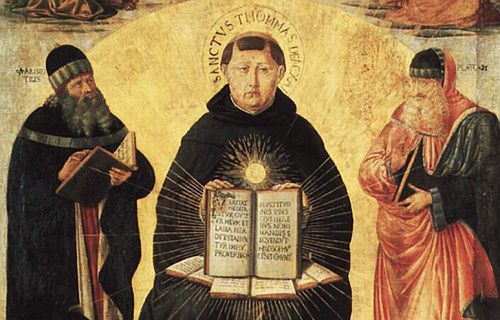Recently released, “The One-Minute Aquinas” aims to share the wisdom of St. Thomas Aquinas in an accessible format to help more people learn from the medieval saint, theologian, and philosopher. “So much of what he deals with are those perennial or timeless questions: what does it mean to be a human being? What are our potentials, what are our powers? What does God expect of us?” Kevin Vost, the author of the book, told CNA in a recent interview. St. Thomas Aquinas was a thirteenth century Dominican who authored a vast body of work that continues to influence Catholics, other Christians, and secular thinkers. Vost said the saint was “one of the greatest, most profound, saintly people in the history of humanity” and “one of the wisest people on earth.” He “knew a lot about sublime things, because he had that humility to let him learn from others.” “He also had that boldness that came through faith in God to try his best to deal with these deepest, most important questions.” He added that the saint wrote about “the things that really matter the most,” such the existence of God and proofs for his existence; what God’s existence means for man; and what it means to follow God, to believe in Revelation, and how this belief “thoroughly transforms our lives.” Vost’s book, published by Sophia Institute Press, aims to help people read St. Thomas Aquinas in “brief, accessible chapters,” the author said. “We cut out the deep philosophical language, the jargon, and use common, everyday terms,” Vost said. “Probably not a lot of people realize how accessible he is, how practical he is, and how useful it is to know what he wrote about.” “The One-Minute Aquinas” covers the human soul, free will, habits and virtues, human happiness as well as the nature of God, the person of Christ, the sacraments, angels, and prayer. It also summarizes St. Thomas Aquinas’ answers to questions such as whether science helps or hinders devotion to God, whether it is a sin to belittle oneself, to be boring, to love wine, or to be curious. The book includes diagrams and charts to help present the information. “One of the goals here was to cover most topics in a page at most,” Vost said. “Something you could read a few minutes at a time.” Vost is a former atheist, and said he once believed that faith was “something that opposed reason.” “Thomas just masterfully shows how that is not the case. Faith does not contradict reason, it rises beyond it.”

